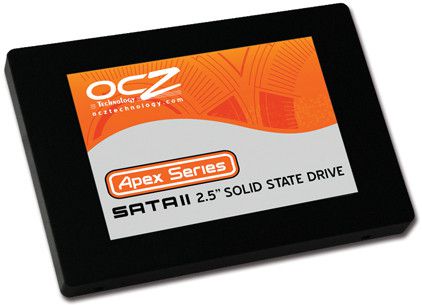From our front-page news:
With there being so much solid-state disk talk all over the place, there are also countless myths floating about as well. Thanks to these, many have the wrong idea about SSD's, and how owning one will make their lives better. Information Week takes a look at a few common myths and facts to help people choose the right SSD, if any, and for the most part, I agree with most of their points.
One that stood out to me was that an SSD will boot faster than a mechanical drive, and that's definitely true. What most people don't take into consideration though, is the fact that the BIOS POST process is what takes up most of the time when booting up, and if you have a bloated Windows installation running, it's going to take a while to load up, regardless of the storage solution. Launching individual applications is no doubt much faster though, and that's where the most noticeable gains usually are.
Another interesting myth is that an SSD will prolong your battery life, which is also true. I can't say that I'm truly impressed with the gains I've experienced in the past though, which have been pretty negligible. It really seems to depend on what you're doing, and if you're watching a movie that's running off the drive, then your CPU usage is going to go up (SSDs have a much higher CPU usage than mechanical drives), so in some cases, the battery-life might be even worse. This is one issue in particular I'm looking to study deeper in the future though.
This is a fairly good article though, and a good one that can be passed along to friends or family who are bugging you about SSDs. Any chance to pass off a link rather than explain the entire technology is a win/win in my books.

Many pundits treat a hard drive as the only component that uses electrical power. Au contraire! It is, in fact, a minor component, overshadowed by the power draw of your screen, CPU, memory, and GPU. The brighter your screen, the more intense your calculations or your display rendering, the more acutely do those four components suck your battery dry. And if you have an optical drive, let's not forget all the spinning it does while you're watching Twilight.
Source: Information Week
One that stood out to me was that an SSD will boot faster than a mechanical drive, and that's definitely true. What most people don't take into consideration though, is the fact that the BIOS POST process is what takes up most of the time when booting up, and if you have a bloated Windows installation running, it's going to take a while to load up, regardless of the storage solution. Launching individual applications is no doubt much faster though, and that's where the most noticeable gains usually are.
Another interesting myth is that an SSD will prolong your battery life, which is also true. I can't say that I'm truly impressed with the gains I've experienced in the past though, which have been pretty negligible. It really seems to depend on what you're doing, and if you're watching a movie that's running off the drive, then your CPU usage is going to go up (SSDs have a much higher CPU usage than mechanical drives), so in some cases, the battery-life might be even worse. This is one issue in particular I'm looking to study deeper in the future though.
This is a fairly good article though, and a good one that can be passed along to friends or family who are bugging you about SSDs. Any chance to pass off a link rather than explain the entire technology is a win/win in my books.

Many pundits treat a hard drive as the only component that uses electrical power. Au contraire! It is, in fact, a minor component, overshadowed by the power draw of your screen, CPU, memory, and GPU. The brighter your screen, the more intense your calculations or your display rendering, the more acutely do those four components suck your battery dry. And if you have an optical drive, let's not forget all the spinning it does while you're watching Twilight.
Source: Information Week
